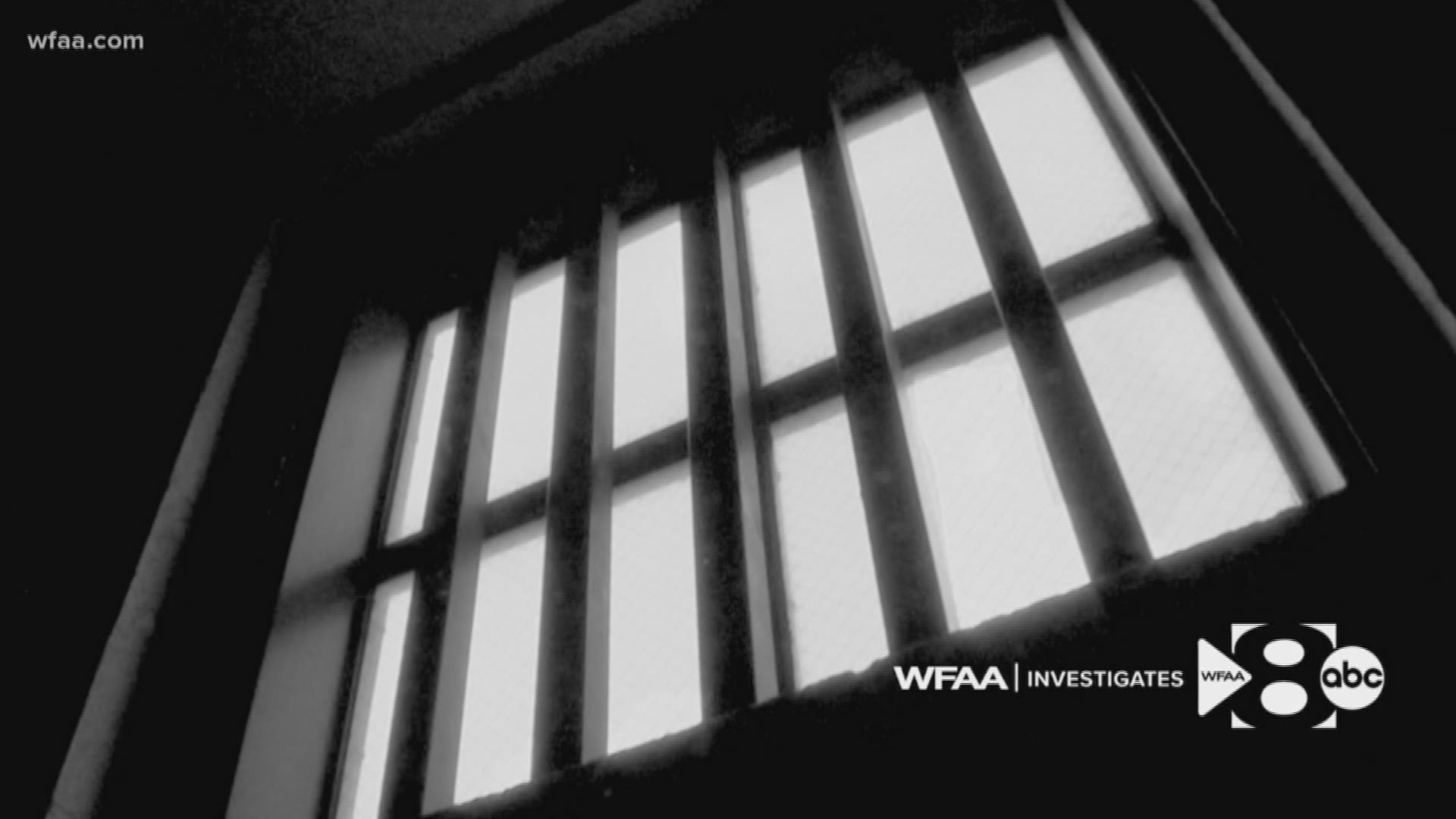For more than a year, WFAA has aired a series of investigative stories focused on our most vulnerable: the mentally ill and the elderly.
WFAA reported how they were exploited, neglected and abused.
However, after our year-long investigation that revealed a lack of effective regulation and oversight, WFAA can now report the impact of the investigation.
The investigative stories are leading the way for changes in laws and helping spur criminal investigations - and even the closure of several hospitals.
The impact of the WFAA stories include the following:
State regulators revoked the licenses of a number of nursing home aides reported by WFAA that had violent criminal histories. In “Criminal Caretakers,” WFAA featured disturbing findings in which state-licensed nurse aides had been arrested for crimes such as injury to the elderly; aggravated assault with a deadly weapon; continuous violence against a family member; injury to a child; aggravated robbery; aggravated sexual contact with a child; armed robbery; and attempted murder.
State lawmakers, cited the “Criminal Caretakers” stories, when proposing legislation to improve the quality and frequency of criminal background checks of nurse aides. State laws are supposed to “weed out” serious and violent offenders. But WFAA uncovered loopholes in state oversight and background checks that led to nearly 200 nurse aides, just in North Texas, working in nursing homes when by law, they should have been prohibited.
State lawmakers also plan to introduce bills to crack down on private, for-profit mental health facilities that violate the law by holding voluntary patients without court orders for days to bilk insurance money. The proposed legislation comes after a WFAA series entitled, “Against Their Will,” that included a town hall meeting with a room full of former for-profit psychiatric patients.
The voluntary patients had gone willingly to the facilities in seek of help, many for outpatient services. But instead, they say they were locked up and illegally held against their fill without a court order. One family and their daughter, who was there voluntarily, say they had to break out of the facility to gain release.
Most recently, in November and December, a Tarrant County Criminal grand jury returned two indictments – for felony counts related to 11 patients – accusing a for-profit psychiatric hospital chain of holding voluntary patients against their will. WFAA featured the hospital chain, Sundance Behavioral Healthcare, among others, in our “Against Their Will” series. Sundance Behavioral Healthcare closed three of its facilities, including two hospitals featured in our stories. The hospital chain has denied any wrongdoing.
Prompted by WFAA’s “Drugged and Dying” stories, several lawmakers say they plan to introduce legislation to stop the unnecessary and inappropriate drugging of nursing home residents. The lawmakers told WFAA they want to ensure patients and their families are allowed informed consent prior to the prescribing and dispersal of powerful anti-psychotic drugs.
WFAA, for example, followed one nursing home resident who suspected she was being drugged to keep her from complaining about the awful care she received. She was right. A lab test paid by WFAA confirmed her concerns that strong sedatives were being dissolved in her drinks without her consent. When transferred to another facility, she was for the first time “diagnosed” with schizophrenia – a condition usually seen in patients in their early 20s – and prescribed an antipsychotic.
A WFAA analysis of federal prescription data showed a 26 percent jump the past several years in Texas nursing home residents diagnosed with schizophrenia, raising concerns government restrictions were being skirted through questionable diagnoses. Various providers told WFAA they were troubled by the spike in schizophrenia diagnoses.
They said such patients are usually first diagnosed early in life – not for the first time as seniors. Digging further into government data, WFAA found that 96 percent of Texas nursing homes admit to inappropriately drugging residents with antipsychotic medications.
State Rep. Bill Zedler told WFAA that he plans to sponsor or co-sponsor several of the bills to curb nursing home and for-profit psychiatric hospital abuse.
“If y'all hadn't brought it up we'd never have known,” Zedler told WFAA reporter Charlotte Huffman. “What it told me is, there's a big problem.”
Zedler said one of the pieces of legislation is to have stiffer fines against holding voluntary psychiatric patients against their will.
“I think what you need to do is send out a loud and clear message that if you hold a patient inappropriately you're going to get fined and you're going to get a pretty severe fine,” Zedler said. “The message needs to be: ‘You get caught, you're going to get hammered.’”
Zedler’s proposed legislation comes after a WFAA review raised questions about the role of state regulators in holding psychiatric hospitals accountable.
While the number of psychiatric care facilities has jumped to nearly 130 statewide, a WFAA review has found that regulators the past three years have not penalized a single psychiatric facility for holding patients against their will. Yet, WFAA was able to fill a room full of them with such allegations in a live town hall meeting this year.

